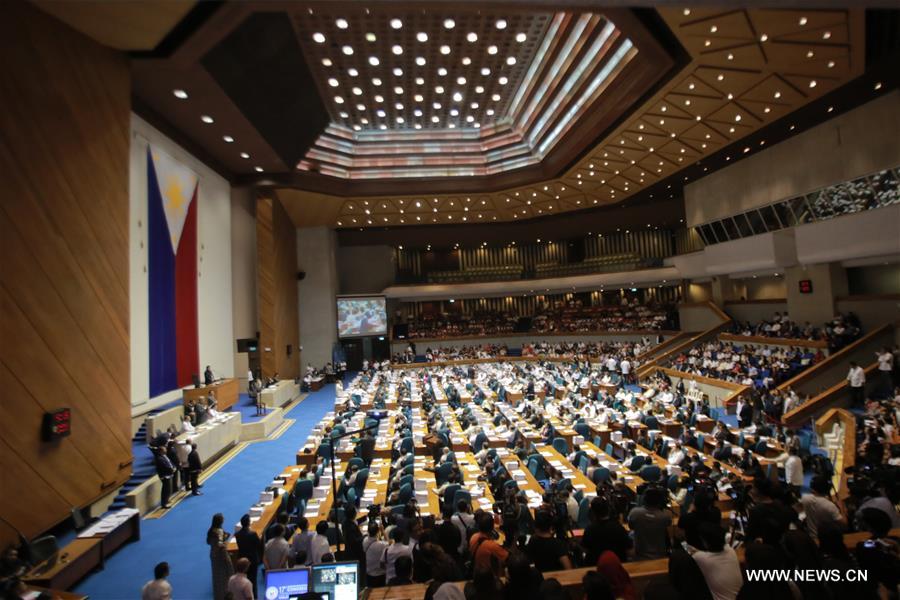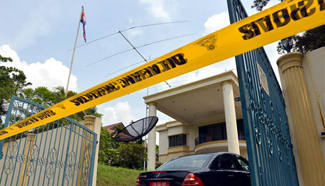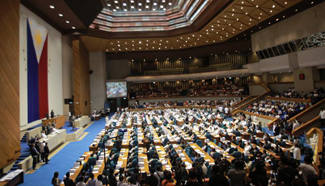
Members of the Philippine Congress attend the 3rd and final reading of the death penalty bill inside the Philippine House of Representatives in Quezon City, the Philippines, March 7, 2017. The Philippine House of Representatives on Tuesday passed a controversial bill that restores the death penalty in the country. (Xinhua/Rouelle Umali)
MANILA, March 7 (Xinhua) -- The Philippine House of Representatives on Tuesday passed a controversial bill that restores the death penalty in the Philippines.
The House approved House Bill No. 4727, which seeks to reimpose capital punishment on drug-related crimes on third and final reading with 217 affirmative votes. Fifty-four lawmakers voted against the measure while one abstained.
Philippine President Rodrigo Duterte who assumed the presidency in June last year, has vigorously pushed for the reimposition of the capital punishment law, saying it's an effective deterrent against heinous crimes.
The bill, coded as House Bill 4727, seeks to punish the perpetrators of eight drug offenses with either life imprisonment or death.
The original draft of the House Bill 4727 included 21 heinous crimes, including plunder, rape and treason. However, the number of crimes were lowered after a House caucus agreed to remove plunder, rape and treason from the list, and then limited only to drug-related crimes when it was passed by the House on second reading last week.
The bill will be transmitted to the Senate for deliberations by the senators. The bill becomes into law when Duterte finally signs it.
Former President Gloria Macapagal-Arroyo abolished the death penalty in 2006. Under Arroyo's watch, the Philippines signed the Second Optional Protocol to the International Covenant on Civil and Political Rights, which requires state parties to abolish capital punishment.
The Death Penalty was abolished under the 1987 Constitution after Ferdinand Marcos was ousted in Feb. 1987. The Philippines then became the first Asian country to abolish the death penalty for all crimes. All death sentences were reduced to reclusion perpetua or life imprisonment.
In 1993, the then administration of President Fidel Ramos reimposed the death penalty to address the rising criminality and incidence of heinous crimes.
In 1999, then President Joseph Estrada issued a de facto moratorium on executions in the face of church-led campaigns to abolish the death penalty.










